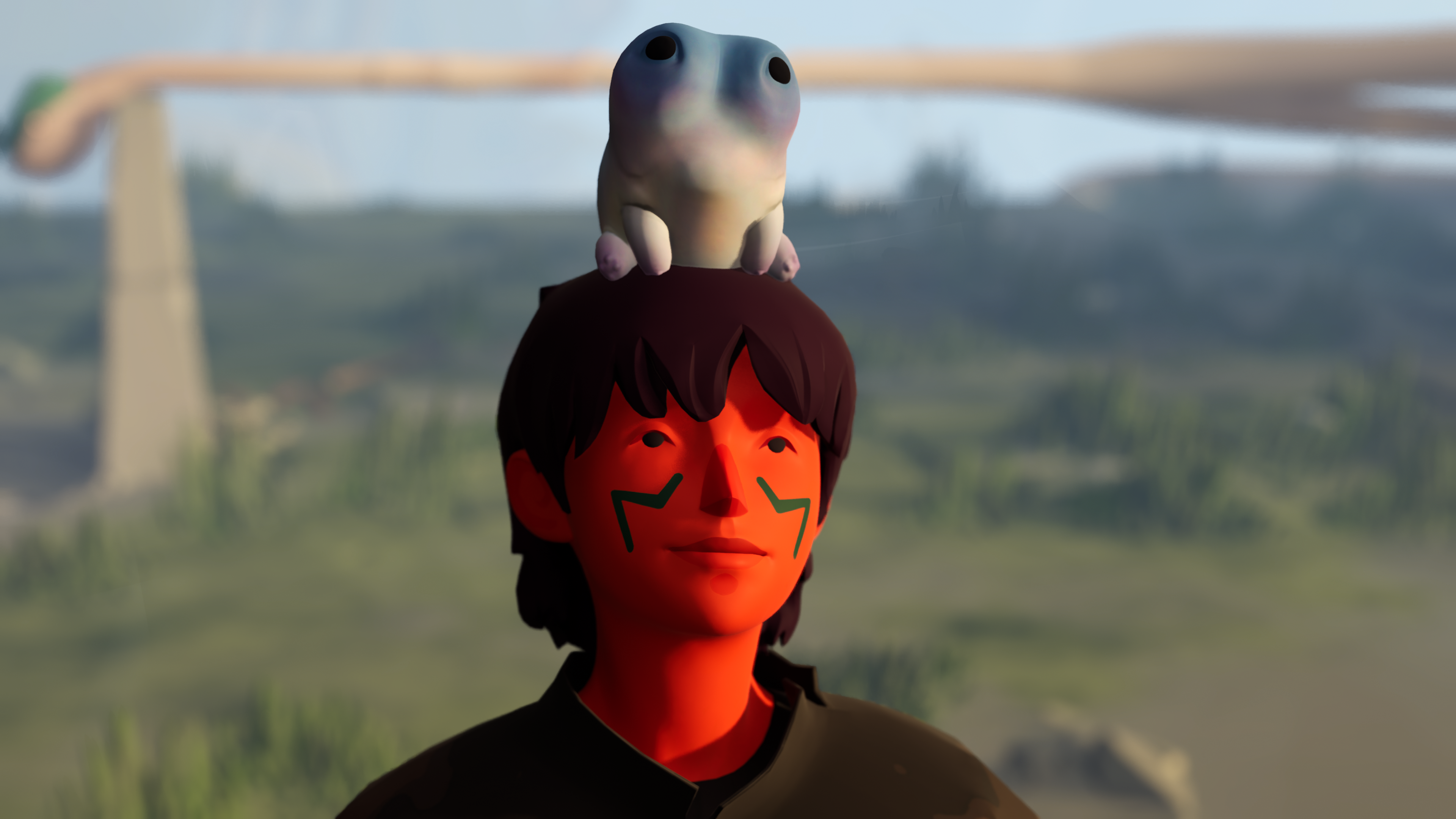Platforms:
PC, PS5, Xbox Series X|S
Released:
October 31, 2023
Publisher:
DON'T NOD
Developer:
DON'T NOD
I’ve always been terribly afraid of heights. Rollercoasters, cliffsides, even Ferris wheels… you’ll struggle to get me near the things, with the fear largely stemming from loss of control. Consider my surprise then when the rock climbing game Jusant, which has players hundreds of meters in the air scaling a giant mountain, has me feeling hooked, safe and capable. Sure, there’s a difference between the real world and this instance of polygons, ones and zeroes. Still, it’s impressive that a game can make you feel on top of the world and feeling empowered as you celebrate its beauty, rather than underneath it. Make no mistake, Jusant is never an uphill battle and instead is entirely captivating, gorgeous and unforgettable.
Jusant comes from Life is Strange creators DON’T NOD, a studio that is on fire of late, releasing Harmony: The Fall of Reverie earlier this year with action-RPG Banishers: Ghosts of New Eden still set to come out early next year. Like all their prior titles, you can expect an artful, contemplative and moving story within the game’s modest runtime, but direct storytelling takes a backseat. Instead, players are asked to take it all in, the world painting its own story with the occasional readable note left behind to piece together some gaps.
Players control an unnamed young male protagonist who sets off to climb this great mountain, labeled the Tower. Their reason for scaling such a gigantic mountain is unclear until near the end of the journey. It took me about five and a half hours to complete with a decent amount of optional sights and collectibles missed, and I was captivated throughout. This is thanks to the vivid sense of place you get in-game. You see, Jusant translated from its French language to English means ebb tide, describing the arid environment you’re exploring. Previously, the Tower only just poked above the seas. Those seas and the people that were tucked away in caves or resided in indents of the mountain are all now gone. All that’s left is remnants of coral reef and other flora and fauna only barely surviving this dried-out land.
Following the trend from the excellent platformer game Celeste, Jusant also explores this idea of a mountain as a character, with the environment having its own story to tell. As you ascend, you see remainders of encampments and previous civilisations. Little huts are hidden away with unmade beds and rooms in disarray. Even complex paths, bridges, scaffolding and the like indicate just some of how this society travelled around the mountain. Meanwhile, cave paintings and small rock cairns exposit the stories the people shared with one another or some of the lives lost along the way. It’s these more discreet moments that stick with me most. After all, a picture is worth a thousand words.
Every so often players will happen upon seashells. The protagonist will hold them to their ear and instead of hearing the ocean, they’ll hear echoes of the past civilisations in their vicinity. The clanking of cutlery on dinner plates matched with the white noise of people talking. Animals previously used for cattle let out grunts and exhale. With this, the mind runs wild with ideas of the type of people that lived here prior and perhaps how they lived their day-to-day lives. This is subtle environmental storytelling that I find really sweet, homely and endearing. Perhaps robbing this feeling from time to time is the readables you find out in the world, removing some of the savvy. Though these will help the player in identifying proper nouns in Jusant’s worlds and what to call curious oddities, it also from time to time details too much and leaves little to the imagination.
“…a picture is worth a thousand words.”
There are other tidbits to collect in-game, many curious artefacts and objects to interact with. These are all engaging but unfortunately can at times feel a little bit hard to locate. A ping of sorts indicates the general vicinity of some interactive objects but this still could be a bit clearer – at the end of every chapter I was cursing myself, and the game a bit, for missing out on cool bits and bobs.
Jusant is a game that is incredibly patient and considerate of the player’s comfort and own sense of progression. It never delves too deep into being a deliberately obtuse or overtly simulation-heavy climbing experience, instead focusing on fluidity and options. Controller play is heavily emphasised with the left trigger being the hold button for the hero’s left hand and the right.. you get the picture. Tilting the left analog stick in a certain direction will have them reach whatever free hands are out, hopefully in the range of the next handhold. This is thoroughly more engaging than the typical climbing in games where all that’s required is aiming in the vague direction and pressing X or A. Movement is more considered and deliberate.

Equipped at the protagonist’s belt is a harness that will automatically hook into designated points when starting from a flat surface. The further up or across your journey, the more you’ll run out of rope or reach, requiring players to place additional pistons to serve as a new anchor or track things back a bit to regain tread and try a different approach. What this means is that thanks to the piston system and clever spacing out of stretches of flat ground, you’ll never fall from significant heights that will result in fall damage or a game over. I adore this touch because, at most, you’ll run out of stamina in some moments and fall, only to end up back at your last anchoring point. Jusant takes you back to these quasi-starting points when you get cocky with this stamina, still teaching you a valuable lesson about energy management and concise movement without cruelly seeing a body limply plummet to its death.
The expected grapple points and ziplines will provide luxurious and cinematic moments where you swing over big clearings with an enormous drop below. Players can also lower themselves down below a piston, giving them more rope to swing horizontally along the side of a cliff face before making a brave leap of faith moment to a far-off rock handhold. Your secret weapon, however, will be a trusty tiny little companion in Ballast, a blob made fully of water that can send out pulses and awaken the nature around you. Not only will grass start sprouting from the dry cracks of the landscape, filling out and accompanying the nautical flora found, but key plants are used for climbing.
This is but another way that Jusant continues to surprise its audience. Suddenly vines will snake their way up cliffsides with built-in handholds to hold on to. Little rock monsters will crawl out of cracks and start scaling the wall, in turn also becoming their own handholds. This only scratches the surface of the ways the game reinvents itself, always offering creative solutions to the player, constantly ushering them along reminding them that they’ve got this.

Jusant is not a difficult game and it benefits the player experience immensely. With the puzzle platformer elements never requiring too much of a second thought, this leaves room for basking in the beautiful, changing sights of the Tower. Yes, of course, there’s the incredibly dry starting biome where emphasis on rich, saturated yellows and oranges indicates the time of day and how far up you are. However, the further up you ascend will mean the opening up of areas closer to the clouds and therefore more greenery, snow and the like. Yet another example of the character the Tower has on offer.
The whole time, the game presents you with an art style that looks almost clay and simplified in nature. This allows for a painterly look while gorgeous lighting and detailing are still very much prevalent. Every jagged edge you use for climbing, every hand and foothold… it’s all very readable without obnoxious yellow paint indicating the way to progress.
There’s a real feeling of reverence, meditation and self-reflection throughout Jusant. Backing this up is a wonderfully effective soundtrack that includes pieces with soft, contemplative piano notes that slowly build, getting bigger and later adding synthesised choirs and the like. Often, they’ll crescendo in really fascinating ways. When you reach a place of refuge on the Tower, so will the music, settling down as you’ve completed another peak. It’s certainly a good means of bolstering a picturesque experience.

Jusant represents a type of game design that the space doesn’t see enough of. Like similar magical, transformative titles prior like Journey, it fully trusts the player to stumble upon and embrace every angle of its beauty on their own. Short of cutscenes, it hides its scripted moments well and leaves everything open for people to make their own sense of. It’s a beautiful piece of work and I’m itching to see more of its ilk.
8.5
Great
Positive:
- Magnificent environmental storytelling that players can interpret in their own way
- Thoughtful climbing mechanics that aren't too simple nor delve too heavy in the sim aspect
- A painterly world with luscious flora and fauna
- Gorgeous pieces of music that compliment the journey
Negative:
- Readables are sometimes too straight forward and ruin some of the mystique
- Collectables and items are sometimes a little too hard to locate
Jusant is wonderful and never fails to impress. It’s at its best when it’s offering you the quiet, contemplative moments, teasing passed on civilisations with its very apt environmental storytelling. Offering climbing gameplay that is more focused on fluidity and responsiveness than gruelling or trivial makes for a smoother and more enjoyable experience, bolstering the cinematic and picturesque world painted. Basking in the glow of the sunlight, reaching a peak and in turn being greeted with beautiful pieces of music that feel almost like they’re cheering you on… they entirely more than make up for the brief moments the game overshares in its otherwise mystique nature. At the end of it all, Jusant is worth the climb, remaining all peaks and no valleys.











